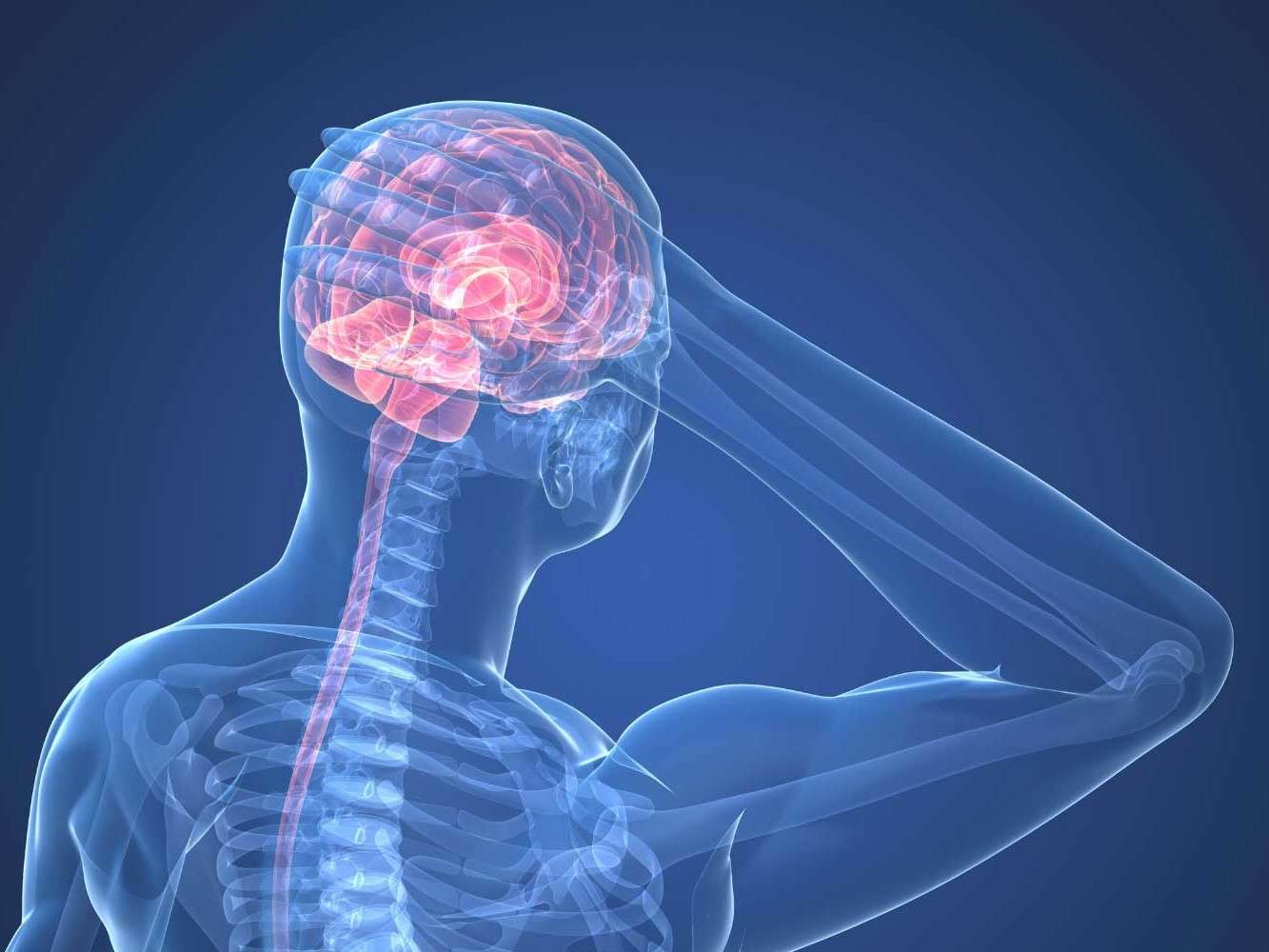The inflammation of the meninges is called Meningitis. As one of the crucial nervous system facts, Meninges are the three membranes covering the brain and spinal cord. Meningitis Disease occurs when the fluid surrounding the meninges becomes infected.
Types of Meningitis
Viral and bacterial infections are the most common causes of Meningitis Disease. Meningitis types have to be studied to get a thorough understanding of meningitis.


Bacterial Meningitis
Bacterial meningitis is a very serious form of Meningitis. It is fatal and leads to death in as little as a few hours. However, most people recover from meningitis but permanent disabilities such as brain damage, hearing loss, and learning disabilities are seen.
Meningitis is caused by which Bacteria? Various types of meningitis bacteria include:
- Streptococcus pneumonia
- Group B Streptococcus
- Neisseria meningitidis
- Haemophilic influenza
- Listeria monocytogenes
Bacterial Meningitis in children is caused by:
- Group B streptococcus
- Coli
- Haemophilus influenzae type b (Hib)
- Strep bacteria that cause pneumonia
Syphilis, tuberculosis, and Lyme bacteria also cause meningitis.
Viral Meningitis
Viral meningitis is more prevalent than the bacterial form and is generally less serious.
The Meningitis Viruses are:
- Coxsackievirus A
- Coxsackievirus B
- Echoviruses
The virus causing meningitis in children include:
- Polioviruses
- Mumps virus (paramyxovirus)
- Flu virus
- West Nile virus


Fungal Meningitis
This is the least common form of meningitis. Healthy people rarely get infected with this meningitis. People with less immunity are likely to get infected.
Parasitic Meningitis
Parasitic meningitis is also very rare. Consumption of raw or uncooked food can cause this meningitis.


Amoebic Meningitis
Amoebic meningitis is a rare and fatal infection caused by a single-celled bug called Naegleria fowleri. This amoeba is found in soil or warm freshwater, but not in saline water.
Non-infectious Meningitis
This meningitis is caused by diseases like cancer or due to any head injury. Side effects due to certain medications can also cause this meningitis. This form is not contagious.

Meningitis In Adults

Meningitis Causes
Each type of meningitis has a different cause, which is one of the major reasons to see a neurologist. But each of them acts in the same way.
The bacteria, fungus, virus, or parasite that causes meningitis spreads through the bloodstream. It passes the bloodstream until it reaches the brain or the spinal cord. In the brain and spinal cord, they set up in the lining or fluids around these body parts. Once they get entered, they start developing into a more advanced infection.
Non-infectious meningitis is caused due to physical injury or other conditions. This type of meningitis doesn’t involve an infection. It’s better to contact a neurologist or get yourself treated by online neurologist.
Meningitis Symptoms
Meningitis shows the following symptoms:
- Fever
- Headache
- Confusion
- Numbness in the face
- Sensitivity to light
- Stiffness in the neck
- Vomiting or nausea
- A hard time concentrating
- Seizures
- Sleepiness or a hard time waking up
- Lack of appetite
- Lack of thirst
- Skin Rash

Meningitis in Children
A child is more at risk for Meningitis Brain if the child has an infection caused by a number of viruses, bacteria, or fungi. Children with weak immune systems are at greater risk of contracting meningitis.
Meningitis Causes
Bacterial or viral infection is the most common cause of meningitis. As per facts about the CNS is concerned, Brain haemorrhage symptoms is one of the rare complications of bacterial meningitis.This infection moves into the cerebral spinal fluid (CSF). CSF is the fluid that protects and cushions the brain and spinal cord. A fungus or parasite may also cause meningitis.
Meningitis by viral infection is more common but usually less severe. Bacterial meningitis, on the contrary, is more severe. It may also lead to long-term complications or death.
The bacteria, viruses, and fungi are responsible for causing meningitis usually grow in a person’s respiratory tract. A child may not show any visible symptoms but may carry the infection. They may be spread by:
- Coming in close proximity to someone carrying the infection
- By touching infected objects and then touching eyes, face, etc.
- Droplets from a sneeze
Children may first show signs of cold, sinus infection, or ear infection. Thereafter, the infection may enter the bloodstream and reach the brain and spinal cord.


The Symptoms of Meningitis In A Child
The symptom of meningitis in the child varies depending upon the cause of the infection. The symptom starts appearing several days after the child has been suffering from a cold and runny nose or diarrhea and vomiting. Always prefer consulting a mind doctor in Delhi or a top neurologist in Jaipur for the same.
In babies, symptoms may include:
- Irritability
- Fever
- Sleeping more than usual
- Poor feeding
- Crying that can’t be soothed
- High-pitched cry
- Arching back
- Bulging soft spots on the head
- Changed temperament
- Purple-red splotchy rash
- Seizures
- Vomiting
Meningitis Pathophysiology
Bacterial meningitis, despite the availability of effective bactericidal antimicrobial therapy, remains a disease with high morbidity and mortality rates. Most of the cases of bacterial meningitis begin with host acquisition of a new organism by nasopharyngeal colonization. It is followed by systemic invasion and the development of high-grade bacteraemia. Bacterial encapsulation leads to this bacteraemia by inhibiting neutrophil phagocytosis and resisting classic complement-mediated bactericidal activity. The invasion of the central nervous system then occurs. But it is not known about the exact site of bacterial traversal into the central nervous system. There is an intense subarachnoid space inflammatory response, which leads to many of the pathophysiologic consequences of bacterial meningitis, including cerebral oedema and increased intracranial pressure. Attenuation of this inflammatory response with adjunctive dexamethasone therapy is associated with reduced concentrations of tumour necrosis factor in the cerebrospinal fluid, diminished cerebrospinal fluid leucocytosis, and perhaps with the improvement of morbidity, as demonstrated in recent clinical trials.


Meningitis Complications
Meningitis can cause severe complications in both adults and children. The possible complications include:
- Seizures
- Brain damage
- Loss of hearing
- Memory problems
- Learning problems
- A hard time walking
- Kidney failure
- Shock
- Death
What Is A Meningitis Brain?
Bacterium entering the bloodstream and traveling to the brain and spinal cord is the cause of acute bacterial meningitis brain—this results in ear or sinus infection, a skull fracture, etc.


Chronic Meningitis
Chronic meningitis has symptoms similar to acute meningitis, but it develops over a couple of weeks. This meningitis results from infections with a fungus or the mycobacteria that are caused by Meningitis Tuberculosis. These organisms get inside the tissue and fluid surrounding the brain to cause meningitis.
Meningitis Treatment
Considering the medical history and the prevailing conditions, the following treatment procedure is followed:
- A blood test to find the bacteria
- To find the inflammation or any swelling, CT or MRI scans are conducted.
- Extracting Spinal Fluid to get to know the cause of the meningitis is also done.
The treatment depends on the type of meningitis the person is suffering from:
Antibiotics and best food for nerves repair are used to treat Bacterial meningitis. Consumption of aspartame wouldn’t be recommended, as aspartame slows down metabolism. The doctor might prescribe general or broad-spectrum antibiotics. This can be prescribed even before the determination of the exact bacteria that is the cause of illness.
Once the cause is diagnosed, the drug will be changed by best neurologist in Faridabad or neurosurgeon in Patna. The drug will be prescribed that targets the specific bacteria they find. Corticosteroids are also prescribed to ease the inflammation caused.
Viral meningitis does not need any medical treatment usually. It gets cured on its own. The doctor might advise the patient to stay in bed, drink plenty of fluids, and take the over-the-counter medication in case there is a fever or aches.
Antiviral medication is suggested for meningitis caused by viruses like herpes or influenza.
Antifungal medications can treat fungal meningitis.
To consult the best doctor or contact a neurologist, fill the form and book an appointment now.

